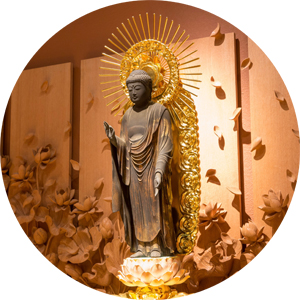Ⅲ02. Ideal of sincerity, courtesy, and harmony
Prince Shotoku was the author of Japan’s oldest Buddhist text “The Sangyou-Gisho” and also the creator of the country’s first written low “The Seventeen-Article Constitution.” The Sangyou-Gisho is a theoretical book that explains the extremely difficult doctrines of Mahayana Buddhism, while the Seventeen-Article Constitution is a set of articles that outlines practical codes of conduct for the country’s bureaucrats.
The Seventeen-Article Constitution is not a law that includes penalties. Rather, it is a kind of ethical code created by interweaving the ideas of Buddhism, Confucianism, Shintoism, and Taoism, but the basic underlying idea is undoubtedly Buddhism. In particular, the commitment to society and self-improvement that is characteristic of Mahayana Buddhism is clearly evident in the Seventeen-Article Constitution.
It could be said to be a practical form of Buddhism, provided not for monks but for bureaucrats. It contains Prince Shotoku’s deep understanding of Mahayana thought and his advanced interpretations of it.
Article 9, the middle of the 17 articles, contains the sentence, “SHIN is the root of GI.” I believe that this article represents the key concept of the Seventeen-Article Constitution.
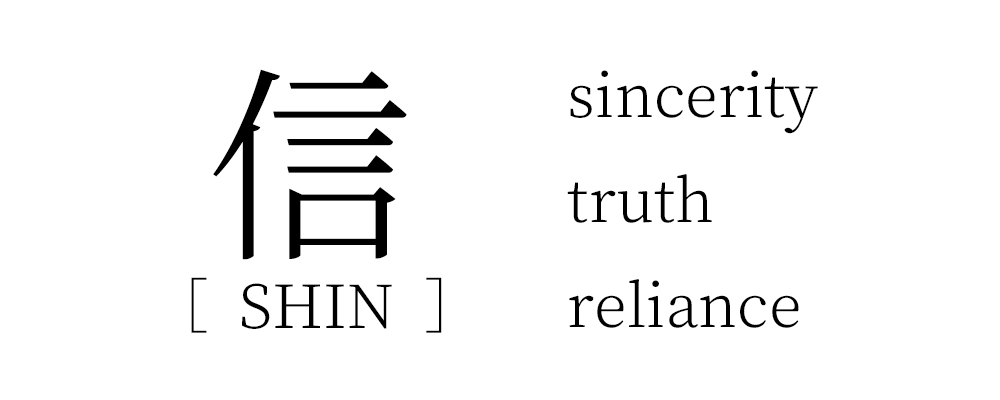
Article 9 states that the judgment of our deeds as good or bad can be made based on whether or not they have “SHIN(sincerity)”.
It states that in a project involving the cooperation of many people, whether it succeeds or fails depends on whether or not there is “SHIN (pure mind)” involved.
The Seventeen-Article Constitution states things like not being late, giving rewards and punishments properly, dividing up roles, not pursuing personal gain, doing good things for society, and building relationships of trust.
These seem to be very basic norms of behavior in society. These fall under the category of “GI” as taught in Confucianism. This kind of behavior that we should do as people living in society is called “GI.”
The important thing here is that these obligatory actions must always be based on “SHIN.” I believe this was what Prince Shotoku considered most important.
There’s no point in doing it if you feel like you’re doing it just because it’s a duty. It’s not helping you grow.
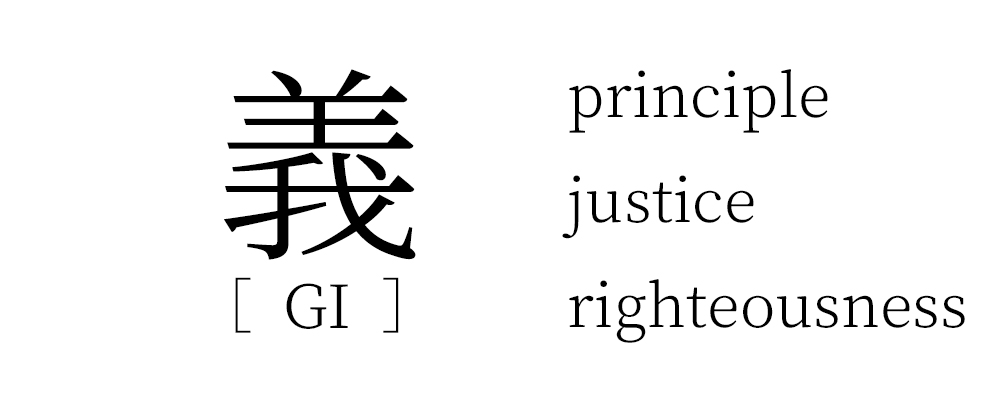
Also “GI” has the meaning of justice, principle, and the Righteous Cause. It is common for people to believe that their own actions are correct and then try to assert this against each other.
However, if the basis of this is solely self-centered and lacks sincerity towards others, then justice will clash with justice, ideology with ideology, or righteousness with righteousness, and conflict will arise. That is why it is important to have a sincere attitude of trying to understand each other’s positions and opinions.
And on the premise that “SHIN” is important in all things, the Constitution also states the importance of “REI.”
REI (courtesy) is the tangible expression of SHIN (sincerity.) And it also means adjusting one’s state of mind by adjusting the formalities of manners.
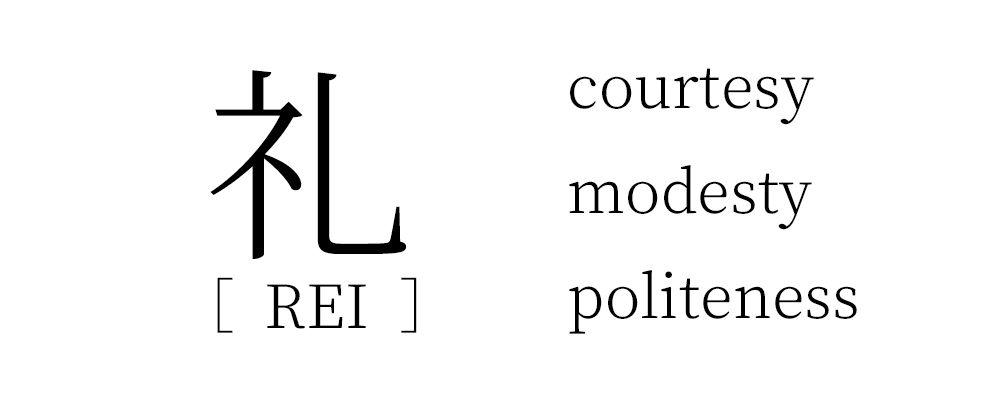
It is important to be considerate of the other person’s position and feelings and be careful not to be rude, and to try not to be self-centered.
When people with different opinions discuss something, if you do not respect the other person, the other person will not respect you either. It just ends up with each asserting their own opinion. In the end, it could simply become vilification.
By each trying to at least be polite to the other, we can keep our selfish mindset in check and maintain stability for the whole.
Article 1 of the Constitution states that “WA is to be valued.” This is a word that almost every Japanese person knows.
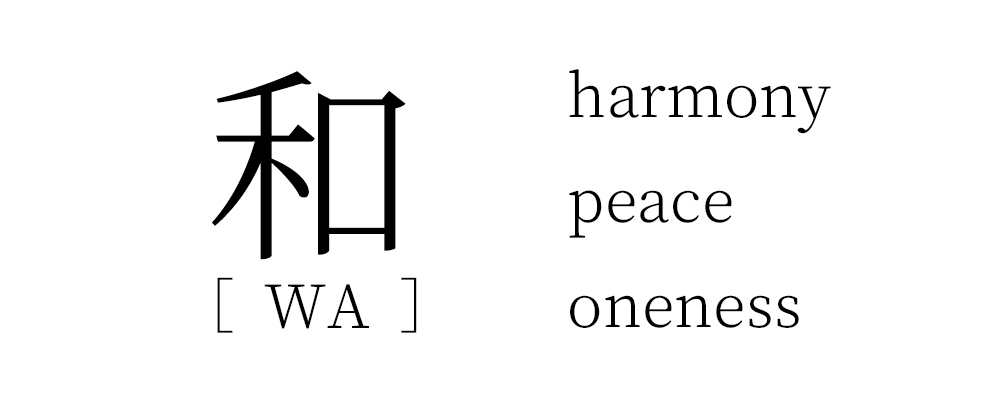
The concept of “WA” is a representative Japanese virtue, and it conveys nuances such as gentle, calm, tranquil, peaceful, and warm. It also means getting along and not fighting, harmony and peace. Prince Shotoku preached at the beginning of the Constitution that ”WA” is a precious value that must be tried to maintained.
When people with different positions and opinions try to work together to solve any problems that arise, it is important for them to have patient discussions and a willingness to adjust their opinions. It is important to clearly state your position and opinion, but at the same time, if you do not try to understand the other person’s position and opinion, there will be no discussion. We need to be careful not to push our demands on each other or become emotional.
Our egocentric perspective can lead us to divide people into friends and enemies. If it leads to unnecessary division and conflict, it will be detrimental to both the whole and individuals.
Article 1 of the constitution, which marked the origin of this country, states that “WA” should be the ideal. Prince Shotoku argued that peace should be the ultimate universal ideal for all humanity. This is also a message that conveys the importance of communication and dialogue.
The Seventeen-Article Constitution states that SHIN, REI, and WA are things that everyone should be aware of. Sincerity, modesty, and harmony are the minimum standards that different people must keep in mind when coexisting and working together. Prince Shotoku clearly conceptualized these three values in this constitution.
This must have had an influence on the subsequent formation of the Japanese character. I don’t know how much of an influence that still has on modern Japanese people, though…

Wa-wo-motte-tattoshi-to-nasu (Harmony is to be valued).
I read the Seventeen-Article Constitution as outlining specific ways of practicing Mahayana Buddhism. By following the guidance provided in this constitution and putting it into practice, the personality of the person who strives to do so will naturally change. By practicing this, we will naturally achieve personal growth.
For an ordinary person like me, it is extremely difficult to put this into practice and complete it. However, I look up to that ideal, try to be conscious of it on a daily basis, and strive to achieve it.
I believe that by doing so, I can bring about positive changes for myself, even if only little by little.
Ⅰ_Japanese Spirituality
01. Buddhism in Japan
02. Thanks to all living beings for my life here and now.
03. Becoming One with the Buddha
04. Light from the other shore
Ⅱ_The teachings of Buddha and Mahayana thought
01. HANAMATSURI -The Beginnings of Buddhism-
02. Anyone can become a Buddha, it depends on you.
Ⅲ_Prince Shotoku’s Buddhist Dharma
02. Ideal of sincerity, courtesy, and harmony
03. What’s false? What’s truth?
Ⅳ_The true state of mind conveyed by Shinran
01. The Three Treasures of Buddhism
02. SHIN is PRASADA
03. Neither a monk nor an layperson
Ⅴ_Listen to namamdhabud


